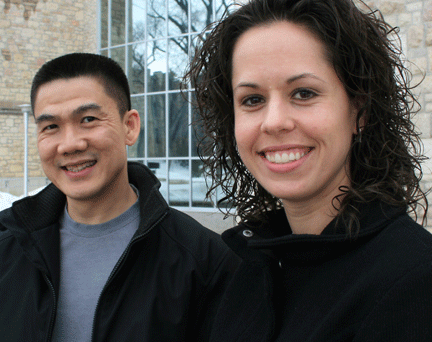Ranking season begins with subject success for the U of S
University ranking season has begun and the first big release of numbers offered up a pleasant surprise for the University of Saskatchewan.
By Colleen MacPherson According to the 2012 Academic Ranking of World Universities (ARWU) compiled by the Shanghai Ranking Consultancy, the U of S is among the top 300 of 1,200 institutions in the world overall, and in the top 200 in two of five broad subject field rankings—engineering/technology and computer sciences, and life and agricultural sciences.
According to the 2012 Academic Ranking of World Universities (ARWU) compiled by the Shanghai Ranking Consultancy, the U of S is among the top 300 of 1,200 institutions in the world overall, and in the top 200 in two of five broad subject field rankings—engineering/technology and computer sciences, and life and agricultural sciences.
In the overall ARWU ranking, the U of S is shown in the 201st-300th-place category, a spot it has occupied for some years. Only the top 100 universities are given specific rankings, explained Carisa Polischuk, a senior research analyst in Institutional Planning and Assessment (IPA), "likely because the scores are really close after 100th place. We've seen other rankings do the same thing."
Nelson Chen, who is also an IPA research analyst, said the U of S may well have been in the top 200 position in the subject field rankings for years but its position only came to light this year when the ARWU published more information than ever before. In past years, it has only provided subject rankings for the top 100 universities.
The ranking puts a great deal of weight on Nobel Prizes won in the subject field categories, he explained, and with no such recent prizes for the U of S, "our position is really the result of criteria like the number of papers published, those papers being published in the top 20 per cent of journals in each subject area, and numbers of citations."
The other three subject fields in ARWU are natural sciences and mathematics, clinical medicine and pharmacy, and social sciences. The U of S position in these areas is uncertain as only the top 200 were published, said Chen.
The ARWU uses third-party data, with 40 per cent of the weighting on quality of faculty, 40 per cent on research output and 20 per cent on quality of education and per capita performance combined. Unlike the two other major world university rankings—the Times Higher Education and QS—the ARWU uses no reputational survey data "which can be quite subjective depending on who you send it to, how they respond and what universities do to advertise themselves," said Chen.
There are 22 Canadian institutions included in ARWU, four of which are in the top 100 overall—the University of Toronto at 27th, the University of British Columbia 39th, McGill 63rd and McMaster 92nd. A total of 10 Canadian universities share the 201-300th-place category including the U of S.
In the subject field ranking, 19 Canadian universities, including the U of S, were in the top 200 in at least one subject; McGill, the University of Alberta, UBC and the U of T were in the top 200 in all five of the subject fields.
Polischuk said that while the ARWU is among the more objective of the rankings, "Canadian students aren't necessarily paying attention to it, but international students are," which makes the results a recruitment tool for both students and faculty for the U of S. Chen explained that the ARWU ranking is an important one for Chinese consultants who provide services for students looking to study overseas, "and if you don't show up in the ranking, the consultants don't mention you."
Karen Chad, U of S vice-president of research, said AWRU "is one of several key national and international performance measurement tools we are tracking to assess our comparative research impact. Our aim is to move into the AWRU top 200 universities overall, an accomplishment that could bolster our efforts to attract top faculty and students from around the world."

